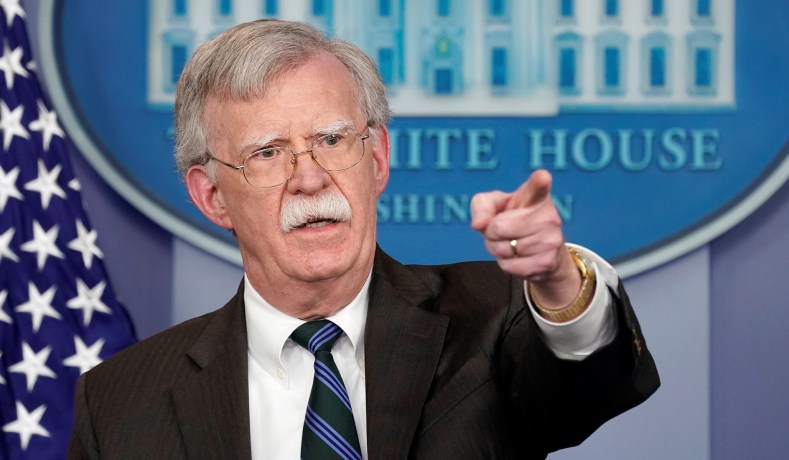
Speaking virtually at the Aspen Security Forum Tuesday, former national-security adviser John Bolton reprised his previous criticisms of President Trump’s approach to China, expanding on a recent op-ed in which he predicted that the recent series of policies targeting the country would disappear after the election.
Since leaving the administration, Bolton has been a constant Trump critic. In his book about working for Trump, he leveled bombshell allegations about Trump’s attitudes toward China, alleging that Trump told Chinese Communist Party general secretary Xi Jinping that he approves of China’s detention facilities in Xinjiang, where over one million Uighur Muslims have been imprisoned arbitrarily. According to Bolton, Trump also encouraged Xi to purchase more soybeans and wheat to improve his political prospects heading into 2020. Trump has denied the allegations.
During the Aspen conference, Bolton shared some more thoughts about Trump’s attitudes on trade with China, arguing that the president’s focus on a trade deal with China led him to overlook Beijing’s behavior in other areas:
But the trade deal was close to being an obsession, and you’ll remember that in the early days of the coronavirus concern in this country as the staff at the NSC, the Centers for Disease Control and elsewhere were raising red flags, Trump didn’t want to hear any bad news about China. He didn’t want to hear any bad news about Xi Jinping, that they were concealing the extent of the pandemic in China, engaging in an international disinformation campaign.
Despite this, Bolton acknowledged that the Trump administration has recently enacted a raft of measures targeting the CCP for, among other things, its activities in the South China Sea, Hong Kong crackdown, and repression of the Uighurs, but he questions whether this will continue in a second term:
But most of the criticism [of China] is coming from his other senior advisers. The steps he’s taking, signing legislation to authorize sanctions for the Chinese repression of the Uighurs, simply reaffirms authority he already has and can be rescinded, as can the other steps. This is why the removal of the political guardrail of the need to be re-elected I think leaves the field open to Trump in a second term to do pretty much what he wants. Don’t get me wrong, every one of these tough steps that you’ve outlined, I support. And I ask the question, why didn’t this start in January of 2017?
While this White House has enacted some of the toughest measures against China of any recent administration, it’s also true that officials dragged their feet on certain policies, such as sanctions targeting Beijing’s concentration camps in Xinjiang, for fear of disrupting the trade talks.
Following the implementation of Phase One of the trade deal between the two countries six months ago, officials are meeting on or around August 15 to evaluate progress toward the commitments set out in the agreement. Despite the downturn in U.S.–China relations, the South China Morning Post reports that negotiators are in constant contact. Meanwhile, former vice president Joe Biden has made the negotiations a campaign issue, saying in a statement yesterday that “Trump’s ‘phase one’ trade deal is failing — badly.”
It’s unlikely in this political environment that Trump would roll back the recent measures responding to China’s actions before November, but it might be too early to dismiss the prospects of progress on the trade deal, especially if Trump wins reelection. If he remains serious about preserving Phase One and getting Phase Two guarantees from the Chinese side to enact structural economic changes, this would likely require a more conciliatory American posture toward the CCP.
What Trump will do about China in a second term — and what Biden might do in a first term, for that matter — is anyone’s guess.





